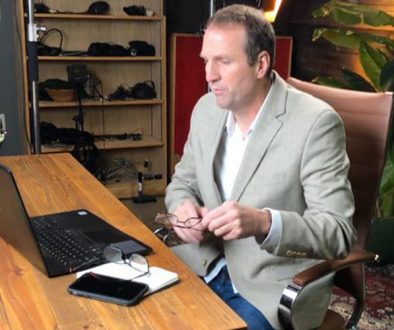Assertive Community Engagement
Introduction:
FAVOR Greenville is a Recovery Community Organization (RCO) which provides a unique and innovative answer to the baffling problem of addiction. Founded in 2004 FAVOR Greenville has grown from a grassroots education and advocacy program into a service deliver organization serving more than 6,000 individuals in Greenville and the surrounding areas. We opened a Recovery Community Center in 2012 and provide individual and group recovery services for both those seeking recovery and their families. In addition, we offer intervention services and socialization opportunities for families and individuals of all ages. We have added a prevention component as well with a group dedicated to children age 9 to 13 and another focusing on teens age 14 to 18.
The Problem–98% of People with Addiction DON’T WANT HELP:
There is much debate related to which treatment works best for people in need of recovery. However, we are of the opinion that this debate is largely a waste of time. We know that people recover when they seek help. There is no one size fits all answer and there are multiple pathways. The odds are relatively good that you will find permanent recovery (around 2/3) if you “keep trying”.
The problem is we have failed to address one major symptom of addiction: people DO NOT WANT HELP. They are in denial or resistant or whatever label you prefer. Regardless of how you frame it up the reality is 95.5% of “people needing treatment but not getting help” did not feel that they needed help. It’s been that way for decades. Source: NHSDUH, 2013
There is general agreement that “denial” is a part of addiction yet we are unwilling to find creative ways to engage the 95.5%. The traditional viewpoint is that we should sit back and wait until the individual “hits bottom” or, in some cases, initiate an intervention. Whatever we are doing, it is not working. If you include the 2.9% who recognized need but did not make effort the total is 98.4% of those in need that are left unattended to.
Essentially, we have been aiming at the wrong target. The question should not be “How do we best help the willing”? Instead the question should be “How do we connect with the unwilling”? Until we find a solution to the staggering statistics mentioned above all our efforts at confronting addiction will be largely ineffective.
Young People:
The picture is even more revealing when you examine the information related to young people and recovery (NHSDUH, 2013):
Relatively speaking, youth and young adults represent the largest demographic group in need:
- At any given time 8.2% of the general population (age 12 and older) meets criteria for substance abuse or dependency.
- However, among 18 to 25 year-olds, the percentage meeting criteria for substance abuse or dependency is 17.3%. Over 2x the rate of the general population.
And relative to other demographic groups youth and young adults are involved in treatment at higher rates than the general population. For example:
- Among 18 to 21 year olds 8.1% of those in need were involved in treatment.
- For example: As compared to:
- 26 to 29 year olds: 2.9%
- 30 to 34 year olds: 2.6%
However, they seem to be vastly under-represented within the recovery community. For example:
- According to the Alcoholic Anonymous member survey less than 1% are 21 or younger and the average age of member is 50 years old.
- According to the Narcotics Anonymous member survey less than 1% are 21 or younger and the average age of member is 43.3 years old.
Interesting dynamic: There are vastly more young people in need and they access treatment more often. However, they are nearly non-existent (statistically) within the recovery community.
Why higher rates of abuse and dependency?: This demographic includes college age students and the obvious implications of that abstinence-hostile environment contributes to this condition. In addition, the natural risk taking associated with youth mixed with access to new and more dangerous drugs makes this group more vulnerable.
Why higher rates of treatment participation?: Parents and other authority figures have influence over this demographic. They can be forced into treatment more readily than older individuals. In other words they are made to attend treatment.
Why such low rates of engagement in traditional recovery?: Because our traditional programs are tailored made for middle age white men (average age 50, race Caucasian) and our current treatment paradigm promotes superficial compliance and lacks individualized recovery planning.
The Solution:
FAVOR Greenville Youth Empowerment Services Presents:
The A.C.E. program at FAVOR GREENVILLE (Assertive Community Engagement)
FAVOR Greenville has launched the Assertive Community Engagement (A.C.E.) program with a focus on engaging and retaining individuals in recovery. Our interest is in the 98% of individuals who do not believe they need help and/or did not attempt to access help. We think that this percentage can be substantially reduced through creative engagement such as home visits, parental engagement, community visits, use of technology, and a commitment to evidenced based coaching techniques which promote establishment of therapeutic rapport.
In addition, due to the above mentioned vulnerabilities and historically poor results associated with youth and young adults, the A.C.E. program will initiate services with a focus on young people. A.C.E. will be part of our “Youth Empowerment Program” service line.
Criteria for Involvement:
- Focus on 16 to 26 year olds experiencing substance abuse or dependency.
- Family needs to be Greenville County/surrounding area resident but the “client” does not necessarily need to be in Greenville at the time of service engagement (ie…young person “off” at college).
- Family or other interested party can “make the referral”. All we ask is that the family inform the individual they will be contacted by FAVOR. C.E. staff will initiate the relationship from that point on. We do not need the client to show up for session. We will figure it out.
- There needs to be some evidence of resistance to traditional avenues of help (ie…the young person refuses to attend outpatient counseling or meetings or group therapy etc…)
- The parents/family need to be open to home visits and willing to participate in family meetings and other family recovery related activities.
Overview of the program:
In some states Mental Health has a long tradition of delivering services in the home and/or community (ie… Targeted Case Management, Intensive Case Management, Assertive Community Treatment). These programs have been exceptionally effective at engaging patients, reducing healthcare costs across the board, and supporting improved quality of life among participants. Borrowing on these principles the A.C.E. program will provide direct services in the home and community. These principles include:
- Motivational Interviewing as the foundation for all coaching activities.
- Peer-based recovery coaching as the primary vehicle for engagement.
- Integration of natural family and other social supports into the recovery planning process.
- Regularly scheduled in-home visits and phone calls/texts to support connection between visits.
- Small caseloads to ensure appropriate staff response.
- Specially trained staff dedicated to the A.C.E. program.
- Case-management and service coordination interventions as needed/appropriate.
- Strengths-based and solution focused interventions.
- The “environment” as a therapeutic tool.
We believe that a focus on engagement will result in 20%-30% increase in recovery retention. We believe that people in the “recovery process” improve regardless of number of “days clean”. It is the HOPE of FAVOR Greenville that this type of program will serve as a model for realistic, cost effective and efficient recovery outreach.
for more information please see FAVOR Greenville


